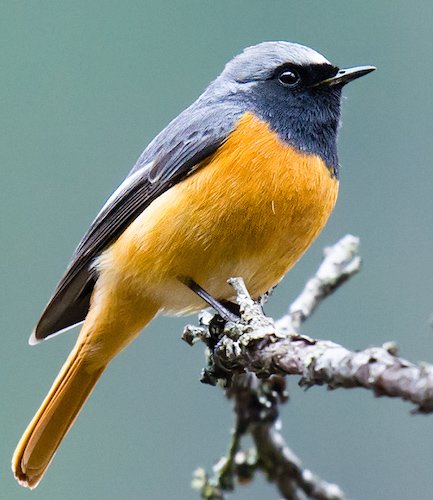People’s Republic of China

China, officially the People’s Republic of China (PRC), is a country in East Asia. With a population exceeding 1.43 billion, it is the world’s second-most populous country after India. China spans the equivalent of five time zones and borders fourteen countries by land. With an area of nearly 9.6 million square kilometers (3,700,000 square miles), it is the third-largest country by total land area, The country is divided into 33 province-level divisions: 22 provinces, five autonomous regions, four municipalities, and two semi-autonomous special administrative regions. Beijing is the national capital with a population of 22 million people, yet Shanghai is its most populous city by urban area with 30 million inhabitants and largest centre along with Chongqing as the largest city proper in the world with 18 million inhabitants. The next largest are Guangzhou (14.6 million), Shenzhen (13.3 million), and Chengdu (9.9 million) with another dozen megacities in China.
China’s landscape is vast and diverse, ranging from the Gobi and Taklamakan Deserts in the arid north to the subtropical forests in the wetter south. The Himalaya, Karakoram, Pamir and Tian Shan mountain ranges separate China from much of South and Central Asia. The Yangtze and Yellow Rivers, the third- and sixth-longest in the world, respectively, run from the Tibetan Plateau to the densely populated eastern seaboard. China’s coastline along the Pacific Ocean is 14,500 km (9,000 mi) long and is bounded by the Bohai, Yellow, East China and South China seas. China connects through the Kazakh border to the Eurasian Steppe.

The Great Wall – ©Severin stalder CC BY-SA 3.0 via Wikimedia Commons
China’s landscapes vary significantly across its vast territory. In the east, along the shores of the Yellow Sea and the East China Sea, there are extensive and densely populated alluvial plains, while on the edges of the Inner Mongolian plateau in the north, broad grasslands predominate. Southern China is dominated by hills and low mountain ranges, while the central-east hosts the deltas of China’s two major rivers, the Yellow River and the Yangtze River. Other major rivers include the Xi, Mekong, Brahmaputra and Amur. To the west sit major mountain ranges, most notably the Himalayas. High plateaus feature among the more arid landscapes of the north, such as the Taklamakan and the Gobi Desert. The world’s highest point, Mount Everest (8,848 m), lies on the Sino-Nepalese border. The country’s lowest point, and the world’s third-lowest, is the dried lake bed of Ayding Lake (−154 m) in the Turpan Depression. A major environmental issue in China is the continued expansion of its deserts, particularly the Gobi Desert.
China’s climate is mainly dominated by dry seasons and wet monsoons, which lead to pronounced temperature differences between winter and summer. In the winter, northern winds coming from high-latitude areas are cold and dry; in summer, southern winds from coastal areas at lower latitudes are warm and moist.

Black Dragon Pool Park – Jade Dragon Snow Mountain – ©Angband CC BY-SA 3.0 via Wikimedia Commons
China is one of 17 mega-diverse countries, lying in two of the world’s major biogeographic realms: the Palaearctic and the Indo-Malayan. By one measure, China has over 34,687 species of animals and vascular plants, making it the third-most biodiverse country in the world, after Brazil and Colombia.
China is home to at least 551 species of mammals (the third-highest in the world), 1,392 species of birds (eighth), 424 species of reptiles (seventh) and 333 species of amphibians (seventh). Wildlife in China shares habitat with, and bears acute pressure from, one of the world’s largest population of humans. At least 840 animal species are threatened, vulnerable or in danger of local extinction, due mainly to human activity such as habitat destruction, pollution and poaching for food, fur and traditional Chinese medicine. Endangered wildlife is protected by law, and as of 2005, the country has over 2,349 nature reserves, covering a total area of 149.95 million hectares, 15 percent of China’s total land area. Most wild animals have been eliminated from the core agricultural regions of east and central China, but they have fared better in the mountainous south and west.

Five Flower Lake, Suchuan – ©Chensiyuan CC BY-SA 4.0 via Wikimedia Commons
China has a wide variety of forest types. Cold coniferous forests predominate in the north of the country, supporting animal species such as moose and Asian black bear, along with over 120 bird species. The understory of moist conifer forests may contain thickets of bamboo. In higher montane stands of juniper and yew, the bamboo is replaced by rhododendrons. Subtropical forests, which are predominate in central and southern China, support a high density of plant species including numerous rare endemics. Tropical and seasonal rainforests, though confined to Yunnan and Hainan, contain a quarter of all the animal and plant species found in China. China has over 10,000 recorded species of fungi.
Birding China
The Peoples Republic of China, or The Middle Kingdom as it is known, is large; just a bit bigger than the United States of America, but with roughly six times the population. The majority of people live in the agricultural East and South, leaving huge expanses of the West more sparsely populated. As one would expect from a country spanning 35 degrees of latitude and 65 degrees of longitude, the geographic diversity is equally enormous; tropical rainforests in southern Yunnan, alpine valleys of the eastern Himalaya, endless grasslands, deserts and cultivated valleys surrounding some of the world’s longest rivers.
This variety provides habitat for lots of birds; nearly 1400 species in fact, with over 60 endemics, including 14 Pheasants, 7 Laughing-thrushes, 4 Parrotbills and 4 Rose-finches. The country is also excellent for Cranes, with 7 species regularly recorded, and Tits, with a staggering 28 species.
Unfortunately, the pressure imposed by the huge population spells bad news for the wildlife; apparently nearly 15% of the country is set-aside as reserves protected by law, but this does not mean the areas are protected in reality. Logging and hunting persist, the waterways are polluted beyond belief and much of the northeast is under threat of desertification as a result of merciless deforestation in the north. The government in Beijing has firm plans to do all it can to extend the protection of wildlife, but the recovery will be slow, and quite probably too late for some of the countries more vulnerable endemics.

Giant Pandas – ©chensiyuan CC BY-SA 4.0 via Wikimedia Commons
If the possibility of amazing birds encourages you to get on a plane and discover the wonders yourself, the logistics of travel have to be considered. Even in the largest cities of Beijing and Shanghai, very little English is spoken, and once you are out in the countryside, a shouted ‘hello’ is about all you will get. The prices for foreigners are often inflated, so be prepared to haggle, and even though the freedom of movement has improved tremendously in the last decade, some hostility and bureaucracy may still be experienced in more remote areas. In light of these potential difficulties, many of the birders deciding to visit China come on tours, with local guides, of which there is a great selection.
The endemic heartlands of Tibet and Sichuan are popular destinations, as are Beidaihe and Happy Island on the east coast. The latter having been a Mecca for birders for over 20 years now, as they arguably offer the best chances to encounter ‘Sibes’; the Shorebirds, Warblers, Flycatchers, Buntings and Chats that occur as vagrants in Europe and North American. For those prepared to get stuck in, China offers an excellent adventure; language problems, questionable sanitation, erratic drivers, rugby scrum queues, wonderful/terrible food, unreliable bus timetables, and in some areas, the potential of altitude sickness. Areas of prime habitat can be devoid of bird life, whilst polluted drainage ditches can be alive with Buntings and Warblers. The sense of being somewhere foreign is always profound, and the ability to toast the days birding with cheap beer is always a bonus. Many trip reports, reserves information and etc. can be found on the individual state pages accessed via the links below.

-
Qinghai
High altitude wetlands of Koko Nor, grassland specialties and the Snowfinch/Rosefinch capital of the world. -
Sichuan
The areas of Wolong and Jiuzhaigou are on the tour circuit. High-altitude birding, spectacular scenery and perhaps 30 endemics. -
Yunnan
Xishuangbanna, for tropical rainforest birds like Pittas and Broadbills. Ruili for SW endemics and stragglers from Myanmar. The wetlands of CaoHai for Black-necked Crane. Fantastic old towns with ethnic minority populations and in my opinion, the best culture in China.
-
Alister Benn
Yunnan, China | alister@availablelightimages.com
http://availablelightimages.com/
-
Number of bird species: 1392
(As at June 2024)National Bird: Red-crowned Crane Grus japonensis
Number of endemics: 62
17 Non-Passerines
Sichuan Hill Partridge Arborophila rufipectus
Collared Hill (White-necklaced) Partridge Arborophila gingica
Hainan Hill Partridge Arborophila ardens
Hainan Peacock-Pheasant Polyplectron katsumatae
Przevalski’s Partridge Alectoris magna
Chinese Monal Lophophorus lhuysii
Verreaux’s Monal Partridge Tetraogallus obscurus
Cabot’s Tragopan Tragopan caboti
Reeves’s Pheasant Syrmaticus reevesii
Elliot’s Pheasant Syrmaticus ellioti
Golden Pheasant Chrysolophus pictus
White Eared-Pheasant Crossoptilon crossoptilon
Brown Eared-Pheasant Crossoptilon mantchuricum
Blue Eared-Pheasant Crossoptilon auritum
Severtzov’s Hazel (Chinese) Grouse Tetrastes sewerzowi
Sichuan Wood-Owl (Pere David’s Owl) Strix davidi
Chinese Barbet Psilopogon faber
45 Passerines
Giant Grey Shrike Lanius giganteus
Sichuan Jay Perisoreus internigran
Xinjiang Ground-Jay Podoces biddulphi
Yellow-bellied Tit Periparus venustulus
White-browed Tit Poecile superciliosus
Pere David’s Tit Poecile davidi
Sichuan Tit Poecile weigoldicus
Gansu Leaf-Warbler Phylloscopus kansuensis
Claudia's Leaf Warbler Phylloscopus claudiae
Emei Leaf Warbler Seicercus emeiensis
Hartert’s Leaf Warbler Seicercus goodsoni
Hainan Leaf Warbler Seicercus hainanus
Silver-throated Bushtit Aegithalos glaucogularis
Sooty Bushtit Aegithalos fuliginosus
Rufous-tailed Babbler Moupinia poecilotis
Tarim Babbler Rhopophilus albosuperciliaris
Three-toed Parrotbill Cholornis paradoxus
Spectacled Parrotbill Sinosuthora conspicillatus
Grey-hooded Parrotbill Sinosuthora zappeyi
Przevalski’s (Rusty-throated Parrotbill) Sinosuthora przewalskii
Nonggang Babbler Stachyris nonggangensis
Grey-sided Scimitar-babbler Megapornatorhinus swinhoei
Golden-fronted Fulvetta Schoeniparus variegaticeps
Chinese Fulvetta Fulvetta striaticollis
Grey-hooded Fulvetta Fulvetta cinereiceps
Spectracled Fulvetta Fulvetta ruficapilla
Rufous-headed Robin Larvivora ruficeps
Snowy-cheeked Laughingthrush Garrulax sukatschewi
Barred Laughingthrush Garrulax lunulatus
Biet’s (White-speckled) Laughingthrush Garrulax bieti
Blue-crowned Laughingthrush Ianthrocincla courtoisi
Pere David’s (Plain) Laughingthrush Garrulax davidi
Tibetan Babax Garrulax koslowi
Buffy Laughingtrush Pterorhinus berthemyi
Grey-faced (Emeishan) Liocichla Liocichla omeiensis
Przevalski’s Nuthatch Sitta przewalskii
Yunnan Nuthatch Sitta yunnanensis
Sichuan Treecreeper Certhia tianquanensis
Chinese Shortwing Brachypteryx sinensis
Przevalski’s (Ala Shan) Redstart Phoenicurus alaschanicus
Przevalski’s Rosefinch Urocynchramus pylzowi
Roborovski's (Tibetan) Rosefinch Carpodacus roborowskii
Sillem’s Mountain Finch Leucosticte sillemi
Tibetan Bunting Emberiza koslowi
Slaty Bunting Latoucheornis siemsseniThere are also 13 'breeding endemics', birds that breed only in China. They are:
Swinhoe's Minivet Pericrocotus cantonensis
Silver Oriole Oriolus mellianus
Three-banded Rosefinch Carpodacus trifasciatus
Manchurian Reed Warbler Acrocephalus tangorum
Chinese Leaf Warbler Abrornis inornatus
Alström's Leaf Warbler Seicercus soror
Sulphur-breasted Leaf Warbler Seicercus ricketti
Red-billed Starling Spodiopsar sericeus
Blackthroat Calliope obscura
Hodgson's Redstart Phoenicurus hodgsoni
Chinese Thrush Otocichla mupinensis
Grey-sided Thrush Turdus feae
Kessler's Thrush Turdus kessleri
-
Avibase
PDF ChecklistThis checklist includes all bird species found in China , based on the best information available at this time. It is based on a wide variety of sources that I collated over many years. I am pleased to offer these checklists as a service to birdwatchers. If you find any error, please do not hesitate to report them. -
Wikipedia
Annotated ListThis is a list of the bird species recorded in China. The avifauna of China include a total of 1431 species, of which 57 are endemic, and 3 have been introduced by humans. Of these, 108 species are globally threatened.
-
A Naturalist's Guide to the Birds of China
| (Southeast China, including Shanghai) | By Liu Yang, Yong Ding Li & Yu Yat-tung | John Beaufoy Books | 2014 | Paperback | 176 pages, ~300 colour photos, 3 colour maps | ISBN: 9781909612235 Buy this book from NHBS.com -
A Photographic Guide to the Birds of China
| By Qu Liming | The Straits Publishing & Distribution Group | 2014 | Paperback | 544 pages, colour photos | Chinese Text Only | ISBN: 9787806919408 Buy this book from NHBS.com -
Birds in China
| By Zhang Guangmei, Zhu Xiang & Pang Bingzhang | China Forestry Publishing House | 2002 | Hardback | 274 pages, 500+ colour photos | ISBN: 9787503830877 Buy this book from NHBS.com -
Birds of China
| By Liu Yang & Chen Shuihua | Princeton University Press | 2023 | Flexibound | 672 pages, plates with 4000 colour illustrations, colour distribution maps | ISBN: 9780691237527 Buy this book from NHBS.com -
China Birds
| (A Folding Pocket Guide to Familiar Species) | By James R Kavanagh & Raymond Leung | Waterford Press | 2017 | 12 pages, colour illustrations, 1 colour map | ISBN: 9781620052754 Buy this book from NHBS.com -
Guide to the Birds of China
| By John MacKinnon | OUP | 2022 | Edition 2 | Paperback | 513 pages, 164 plates with colour illustrations; colour distribution maps | ISBN: 9780192893673 Buy this book from NHBS.com -
HKBWS Field Guide to the Birds of Hong Kong and South China
| Written & Published by Hong Kong Birdwatching Society (HKBWS) | Edition 9 | 2022 | Paperback | 372 pages, plates with colour illustrations | ISBN: 9789627508342 Buy this book from NHBS.com -
Pocket Photo Guide to the Birds of China
| By John MacKinnon & Nigel Hicks | Bloomsbury Publishing | 2016 | Paperback | 144 pages, 300 colour photos, colour distribution maps | Out of Print | ISBN: 9781472932136 Buy this book from NHBS.com

Birds of the Eastern Asia
AndroidBirds of the Eastern Asia. It includes the birds of China, Japan, North Korea, South Korea, Mongolia, Taiwan. 1589 kind of birds, more than 6300 pictures.Organisations-
Birdwatching Societies
InformationInteractive map -
China Bird Watching Network
WebsiteBird watching is becoming increasingly popular in China mainland. In the past couple of years, more and more bird watching societies have been formed. Learn more about these bird watching societies. -
China Ornithological Society
WebsiteChina Ornithological Society (COS) is a leading NGO working on ornithology and bird conservation in China. The aims of COS are to develop ornithology in China, set up a nation-wide network and promote international cooperation in research and conservation actions for the threatened species of birds living in the country -
International Crane Foundation
WebsiteICF supports the work of the Crane and Waterbirds Specialist Group of the China Ornithological Society to promote crane research and the development of professional networks focusing on crane and wetland conservation in China. Through this effort, ICF supports the Small Grants Program for Crane Research to fund select field research projects and assists in the publication of the newsletter China Crane News… -
Oriental Bird Club
WebsiteThe Oriental Bird Club is for birders and ornithologists around the world who are interested in birds of the Oriental region and their conservation -
Spoon-billed Sandpiper in China
InformationSpoon-billed Sandpiper in China © is an organization which protects Spoon-billed Sandpiper and other waterbirds on the Yellow Sea mudflats, the most crucial staging sites for migratory shorebirds along the East Asian-Australasian Flyway. Established in 2008, the SBSC focuses on biodiversity conservation on the Jiangsu coast.
Reserves-
List of protected areas of China
Observatory WebsiteSatellite ViewThis is a list of the nationally protected areas of China. There are many forms of protected areas in China. Based on their relative importance, each type of protected area can be further graded into two to three levels (national, provincial and prefectural/county level). Nevertheless, the highest rank for "pocket nature reserve" (social and mass-based), "no-hunting area", "no-fishing area", "no-logging area", "wild medicinal material resources conservation area", "crop germplasm resources conservation area", "forest tree germplasm resources conservation area" or "source water protection area" is practically restricted to provincial level. The local government at county level is also responsible for the delimitation and declaration of "basic farmland protection area" and "basic grassland". -
Nature reserves in China
Observatory WebsiteSatellite ViewList with hot links. -
Wetlands
WebpageSatellite ViewChina currently has 57 sites designated as Wetlands of International Importance (Ramsar Sites), with a surface area of 6,948,592 hectares.
Guides & Tour Operators-
Summer Wong Bird Tours
Tour OperatorSummer Wong Bird Tours specialises in China birding tours of Sichuan, Yunnan, Qinghai, Tibet & Eastern China... -
Alpine Birding
Tour OperatorBirding trips here are made for avid birders including yearly-run trips and new China birding trips developed by AlpineBirding team and guided by our bird experts... -
Bird-Photo-Tours ASIA
Tour OperatorBird-Photo-Tours ASIA is the specialists in bird photography tours on the Asian continent with a portfolio of 50 bird photography tours across 26 countries and a particular specialism in bird photography in China. -
Birding Ecotours
Tour OperatorOur China birding tours produce a fantastic array of Chinese endemics and near-endemics from the third most biodiverse country on the planet. China birding tours are not only notable for their bird specials, as we also look for many rare and charismatic mammals. -
China Bird Tour
Tour OperatorIn the recent years,I guided lots of birding groups in China and I think all clients much satisfied with my identify on birds and all other services -
China Birding Tours
Tour OperatorChina Birding Tours is a leading birdwatching and wildlife observation company based in Nanjing City, near Shanghai in eastern China. We have extensive knowledge of the birds and wildlife of China and its many fantastic endemics including amazing pheasants, parrotbills and laughingthrushes among others. We focus on providing excellent service to small groups and private tailored custom tours. We are relentlessly focussed on finding the birds but in a relaxed and friendly style backed up by good food accommodation and transport. -
Rockjumper
Tour OperatorChina is a vast land of remarkable diversity and brilliant birds. Sichuan Province showcases China’s finest and most rewarding birding hotspots and we will explore some of the most pristine and remote regions for the many special breeding residents. -
Tropical Birding
Tour OperatorSichuan and Tibetan Plateau
Trip Reports-
2016 [06 June] - Roger & Louise McGovern - South China
PDF ReportAs we walked around the area we picked up Spotted Turtle Dove, Crested Myna, Light-vented (Chinese) Bulbuland Eurasian Tree Sparrow -
2016 [10 October] - Rich Lindie
PDF ReportA few stops between the Lhasa airport and our hotel produced Ruddy Shelduck, Citrine Wagtail, Japanese Tit and both Pallas's and Brown-headed Gulls, followed by a stroll around our hotel gardens which added Grey-backed Shrike, Tibetan Blackbird, Oriental Turtle Dove and a handful of Hill Pigeons to the trip list. Dinner included Yak meat in several forms. … -
2016 [12 December] - Zoothera Birding
PDF Report...From here we visited Emei Feng, a stunning mountain where 7 Elliot’s Pheasants were the highlight, plus we had some views of Cabot’s Tragopan, and both Koklass & Silver Pheasants. We rounded off our tour at Fuzhou Forest Park and an extra day at Nanhui, close to Shanghai with Spotted Elachura, Asian Stubtail and great looks at a drake Baikal Teal... -
2017 [04 April] - Summer Wong - East China
ReportThis is a private tour arranged by Michel and his friends. During the tour we changed the itinerary a little bit because in Wuyuan and Dongzhai we got our target species earlier than we planned so we saved 3 days in total, with the extra 3 days we went to Jiangle to look for Blyth’s Kingfisher, and went to Junfeng NNR to photograph Cabot’s Tragopan. -
2017 [05 May] - Hannu Jännes - Eastern China
PDF ReportBirdquest’s Eastern China tour, an epic 25 day journey across much of eastern China, focusses on an array of rare Chinese endemics and migrants, and this year’s tour once again proved a great success. -
2018 [05 May] - Dave Sargeant - Eastern China
ReportGiven the itinerary, this provided an efficient way of connecting with a number of widely spaced specialities and endemics within a short time frame, so was strongly focussed on quality, not quantity. By necessity, a large amount of travel between sites was required, with several internal flights and many longish drives. Despite the complexity, the logistics went smoothly and the trip a great success. As expected, apart from the birds, China was memorable for its insipid beer and insane driving. -
2019 [11 November] - Colin Bradshaw
PDF ReportThe spectacle of huge numbers of shorebirds was spiced by 15 Spoon-billed Sandpipers, 5 Blackfaced Spoonbills and 10 Nordmann’s Greenshank. -
2021 [07 July] - Michael W
PDF ReportThis is a summary of a trip to Dali, Yunnan during which I took daily trips to different birding sites and found 76 species of birds. I hope that this kind of trip report can fill a gap for those who aren’t able (because of cost or time) to join a professional birding tour, but who want to explore accessible birding areas on their own. -
2021 [10 October] - Michael W
PDF ReportHaving recently made a trip to Beihai city in Guangxi, I wanted to post some basic information about the hawk watch and birding in the city to expand some of the information available in English for those wanting to bird in this area. -
2023 [12 December] - Anders Bacher Nielsen
PDF ReportMostly work, but I went with 2 Chinese colleagues to the Jingshan Park overlooking the Forbidden City. Here there were a surprising abundance of birds, including Spotted Dove, Great Spotted Woodpecker, Azure-winged Magpie, Oriental Magpie, Large-billed Crow, Willow Tit, Chinese Bulbul, Red-billed Starling (lifer), White-cheeked Starling, Naumann’s Thrush (lifer), Tree Sparrow, Brambling, Oriental Greenfinch, Chinese Grosbeak (lifer) -
2024 [02 February] - Hannu Jännes
ReportThis, our first tour to China since the lifting of the Covid-19 travel restrictions, proved a great, bird filled adventure amongst a diverse selection of habitats and a high number of very special birds. -
2024 [04 April] - Paul Varney
PDF Report....A total of 257 bird species were noted with most giving good views... -
2025 [11 November] - Garry Armstrong & David Steele
PDF Report...On exiting the car we realised how cold it was, with temperatures below zero and a cold wind blowing. The flock was Vinous-throated Parrotbills, a species we would see at most locations, plus a Dusky Thrush was sitting up in a tree. Moving on we stopped at a spot that Jiahua knew for Beijing Babbler but there was no sign although we did get our first Pallas’s Rosefinch... -
2025 [11 November] - Joachim Bertrands
PDF ReportBirding was off the charts as well, with despite not visiting during a typically good time for birding still racking up an impressive total of 214 species, among which many mega birds such as Lady Amherst’s Pheasant, Sichuan Partridge, Temminck’s Tragopan, Ala Shan Redstart, Black-necked Crane, Sichuan Treecreeper, Sichuan Leaf Warbler, Tarim Babbler, Daurian Partridge, Mongolian Ground-Jay, Chinese Gray Shrike, Chinese Monal, Blood Partridge, White Eared-Pheasant, Maroon-backed and Robin Accentor, and many more...
Other Links-
Birding Southeast China
WebsiteHundreds of reserves, incredibly beautiful landscapes - Rich avifauna, still poorly-known in many areas... -
Birds of China
WebsiteWhat's so great about a list of bird names? After all, the names that men give are just a pale reflection of the birds themselves. Well, bird-lovers may rejoice in biodiversity, but in matters linguistic they tend to use common or garden English as a lowest common denominator. So, in the interest of 'lingua-diversity', here it is: a list of bird species of China, with names in Chinese, Japanese, Korean, Vietnamese, and Mongolian -
China Bird Watching Network
WebsiteBird watching is becoming increasingly popular in China mainland. In the past couple of years, more and more bird watching societies have been formed. Learn more about these bird watching societies -
Shanghai Birding
WebsiteBirding news from Earth's largest city... with much information on China's special birds.
Photographers & Artists-
Photographer - Alister Benn
GalleryBird Photography by myself and my wife Juanli. Juanli's galleries also include butterflies, flowers and spiders. The Beidaihe list is just species occuring in our home town
-
Fatbirder - linking birders worldwide...
Skip to content


